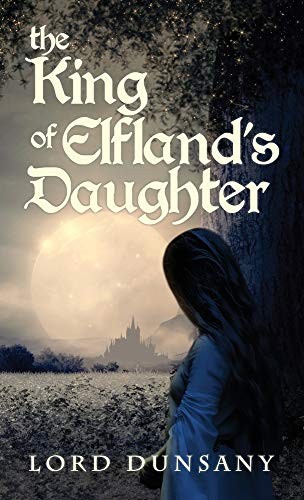AvonVilla@ramblingreaders.org hat King of Elfland's Daughter von Baron Dunsany Edward Plunkett besprochen
I can see why it's a forgotten classic.
3 Sterne
It would take a greater scholar than me to accurately assess the influence this novel has had on later works of fantasy. The tale is set partly in our own world and partly in a magical realm, with denizens of each territory crossing the border as they follow their passions, obsessions, quests and whims . It immediately reminds me of several other stories in that mode: "Narnia", "His Dark Materials", "Jonathan Strange and Mr Norrell" all spring to my mind.
Dunsany's 1924 novel is somewhat harder to digest than any of those subsequent works. His mythic language won me over at times, but mostly I found his long flowery sentences contained a lot of superfluous words. It takes a long time for anything to happen. Occasionally I felt the echoes of biblical language, something you might expect from the more explicitly Christian Tolkien or CS Lewis, But those more …
It would take a greater scholar than me to accurately assess the influence this novel has had on later works of fantasy. The tale is set partly in our own world and partly in a magical realm, with denizens of each territory crossing the border as they follow their passions, obsessions, quests and whims . It immediately reminds me of several other stories in that mode: "Narnia", "His Dark Materials", "Jonathan Strange and Mr Norrell" all spring to my mind.
Dunsany's 1924 novel is somewhat harder to digest than any of those subsequent works. His mythic language won me over at times, but mostly I found his long flowery sentences contained a lot of superfluous words. It takes a long time for anything to happen. Occasionally I felt the echoes of biblical language, something you might expect from the more explicitly Christian Tolkien or CS Lewis, But those more famous chaps come down to earth as it were, or perhaps I should say they linguistically leave Elfland behind and speak in the ways more familiar in the fields we know. They're more preachy, but more fun than Dunsany.
My recent fantasy reading has had me pondering the Arthurian tradition, where the God-given divine right of kings and the fundamental Christian purity of the ruling class co-exist with what appear to be pagan tropes like Merlin and the Lady of the Lake. Dunsany refers to the non-magical world as "Christom" at times, but his human characters don't seem to be churchgoers. Their local holy man is a sort of earthly wizard himself, who utters spells and curses rather than prayers. The story describes a conflict between the magical realm and the fields we know, but I didn't get the sense that this was a battle between good and evil. I found myself cheering for Elfland, but I suspect that's my own prejudice rather than the author's intended meaning.
In the end this book didn't trigger my atheist sensibilities as much as it did my adherence to other tenets: republican, socialist, egalitarian. When one of the main characters becomes obsessed with hunting, he starts with deer and then turns to unicorns, sending his hounds to rip out the throats of his prey, cutting their heads off and mounting them on his castle wall. The vileness of this incident goes unremarked, and indeed "Lord" (FFS) Dunsany was himself partial to a bit of hunting, he was a lordly torturer of animals and a privileged piece of shit by the sound of things. His real name (Ed Plunkett) seems more apt.

